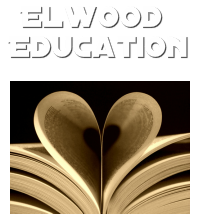VOCABULARY WORK
Sorting through some newspaper clippings on February 13, 2015, I came across a short blurb published under the heading “Other Views” in the March 2, 2005 Daily Breeze, originally published in the Omaha World-Herald.
We’re a Society of Fewer Words
Linguists tell us that the American vocabulary is shrinking. The average 14-year-old, in one widely repeated comparison, communicates in 10,000 words – down from 25,000 words at the middle of the 20th century.
Should this concern us as a society? Not at all, say some educators, who ought to be hanging their heads in shame. In that particular circle, it’s contended that a broad vocabulary is elitist – it gives the educated person an edge.
Let’s run. Maybe we can get away to the hills before our society falls victim to what Dr. David W. Orr of Oberlin College has described as a “national epidemic of incoherence.”
Orr, who . . . edits a magazine for Oxford University . . . says the loss of expressive ability is accompanied by the loss of the ability to think. And a society that thinks less well is in a diminished position to elevate the human condition.
. . . At the very time that thoughtful, intelligent conversation is especially needed to augment executive and legislative (branch) leadership and rally the people, it seems in short supply. Either that, or public figures are talking down to what they perceive is a 10,000-word public.
Neither possibility instills much confidence that ideas are getting the proper amount of attention in the public sector.
MY COMMENTS: Some teachers believe that students no longer need lists of vocabulary to learn. I heartily disagree. With solid and regular instruction followed by accountability, students will be able to increase their vocabulary. People should not confuse poor teaching with appropriate content.
We’re a Society of Fewer Words
Linguists tell us that the American vocabulary is shrinking. The average 14-year-old, in one widely repeated comparison, communicates in 10,000 words – down from 25,000 words at the middle of the 20th century.
Should this concern us as a society? Not at all, say some educators, who ought to be hanging their heads in shame. In that particular circle, it’s contended that a broad vocabulary is elitist – it gives the educated person an edge.
Let’s run. Maybe we can get away to the hills before our society falls victim to what Dr. David W. Orr of Oberlin College has described as a “national epidemic of incoherence.”
Orr, who . . . edits a magazine for Oxford University . . . says the loss of expressive ability is accompanied by the loss of the ability to think. And a society that thinks less well is in a diminished position to elevate the human condition.
. . . At the very time that thoughtful, intelligent conversation is especially needed to augment executive and legislative (branch) leadership and rally the people, it seems in short supply. Either that, or public figures are talking down to what they perceive is a 10,000-word public.
Neither possibility instills much confidence that ideas are getting the proper amount of attention in the public sector.
MY COMMENTS: Some teachers believe that students no longer need lists of vocabulary to learn. I heartily disagree. With solid and regular instruction followed by accountability, students will be able to increase their vocabulary. People should not confuse poor teaching with appropriate content.
While vocabulary instruction is important because it improves comprehension, it also may play a societal role. Society often makes judgments about individuals based upon a person’s use of language. Unfortunately, language usage may become a factor for discrimination. Lack of vocabulary undoubtedly excludes individuals from advanced levels of education and better paying jobs. The research suggests that insufficient word knowledge most likely impacts students educationally at risk.
Since we know that vocabulary knowledge directly impacts comprehension, consider the following information:
1 in 50 Latinos
1 in 100 African Americans (Educational Leadership, March 2001)
Since we know that vocabulary knowledge directly impacts comprehension, consider the following information:
- Mainstream children know about 50% more words than disadvantaged children. (White,Graves, Slater, 1990)
- Close to half of all 17 year olds cannot read or do math at the level needed to get a job in a modern automobile plant. Barring some other special knowledge that would allow them to make a living, such as a plumber or an artist, they lack the skills to earn a middle-class paycheck in today’s economy” (Murnane & Levy, 1996).
- 17 year olds who can gain information from specialized text (e.g. science section of a newspaper):
1 in 50 Latinos
1 in 100 African Americans (Educational Leadership, March 2001)
- Vocabulary instruction helps all students read better. But for less-proficient students, it not only improves reading, it may also improve their lives. The lack of sufficient reading skills creates denied access to both educational and employment opportunities.
